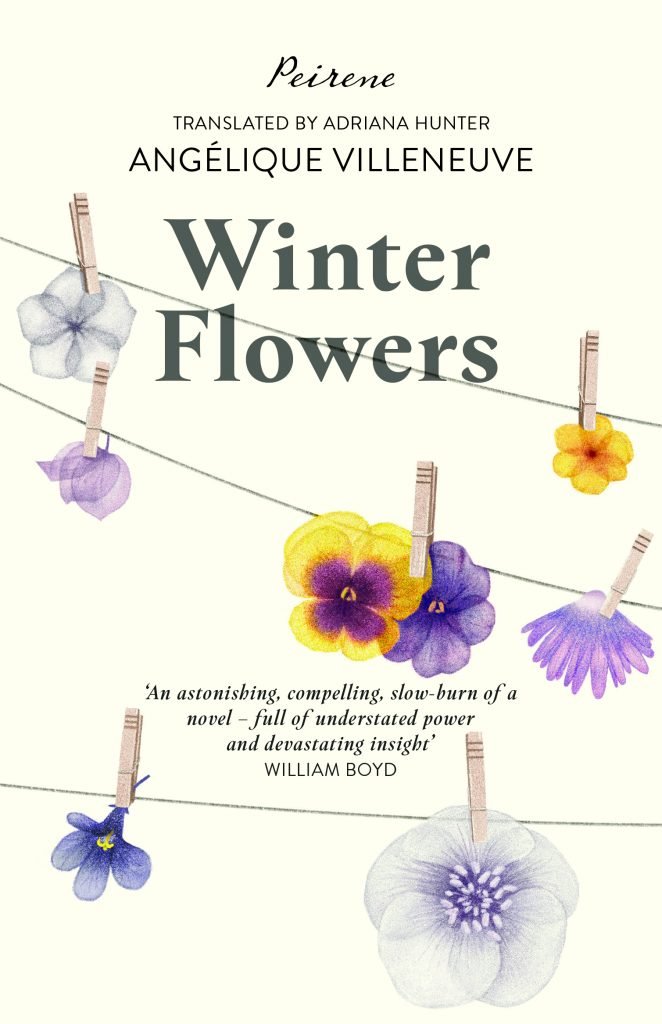I admire a quiet novel that allows emotional significance to arise from the facts of history rather than dramatic or showy events. “Winter Flowers” is set directly after WWI in late 1918 when soldier Toussaint returns to his wife Jeanne and daughter Leonie in Paris. He's been away for years and has been wounded and facially disfigured in battle. Though his much anticipated return is welcome, everyone has been heavily changed by the war, disease and poverty. The majority of the story takes place in the confined quarters of their humble abode where Jeanne spends exhaustive hours painstakingly shaping fake flowers to adorn women's attire in upscale boutiques. This family must slowly readjust to each others' presence. Their interactions are often awkward and Jeanne must guess at the thoughts of the often silent Toussaint. It's a meditative experience following this family as they readjust to each other, grapple with grief and accept what's been lost. It also presents a focused portrait of the state of a country which has been traumatised by war.
It's intriguing how even though Toussaint and Jeanne share a bed again there is still a mental, emotional and sexual gulf between them. Jeanne must mull over his cryptic brief remarks and is reduced to following her husband when he makes unannounced excursions. Her desperation to better understand him is palpable. It's moving how the story delicately presents this example of a couple who aren't able to share their innermost thoughts and feelings. There's also an uncertainty for the characters concerning what's happening in the country. This is presented in an innovative way in one chapter where there is a list of speculations which all begin with the line “Word is...” In this way the author shows how the community is united in their struggle to understand what's happening and how they should best prepare for the future. It reminded me somewhat of the way the author Annie Ernaux is able to simultaneously represent both the individual and the collective psyche in her books through the shifting concerns and preoccupations of a group of people.
Not only is there an aching tension in the relationship between this husband and wife, but also between Jeanne and her daughter Leonie. When Jeanne lashes out against her adolescent girl at one point it's shocking, but also indicative of how they struggle to effectively communicate despite living together in such close quarters. Additionally, there's an absence in this home from a lost family member which is delicately woven into the narrative. The novel presents the continuing impact of many different kinds of loss for both this family and their neighbour Sidonie who once had a large family but is now perilously alone. So even though the central family are lucky to still have each other there are sorrowful gulfs between them. For such a seemingly lowkey story, the author powerfully presents how bereavement creates both barriers and bonds between individuals who rely on one another and the hard-won love between them.








